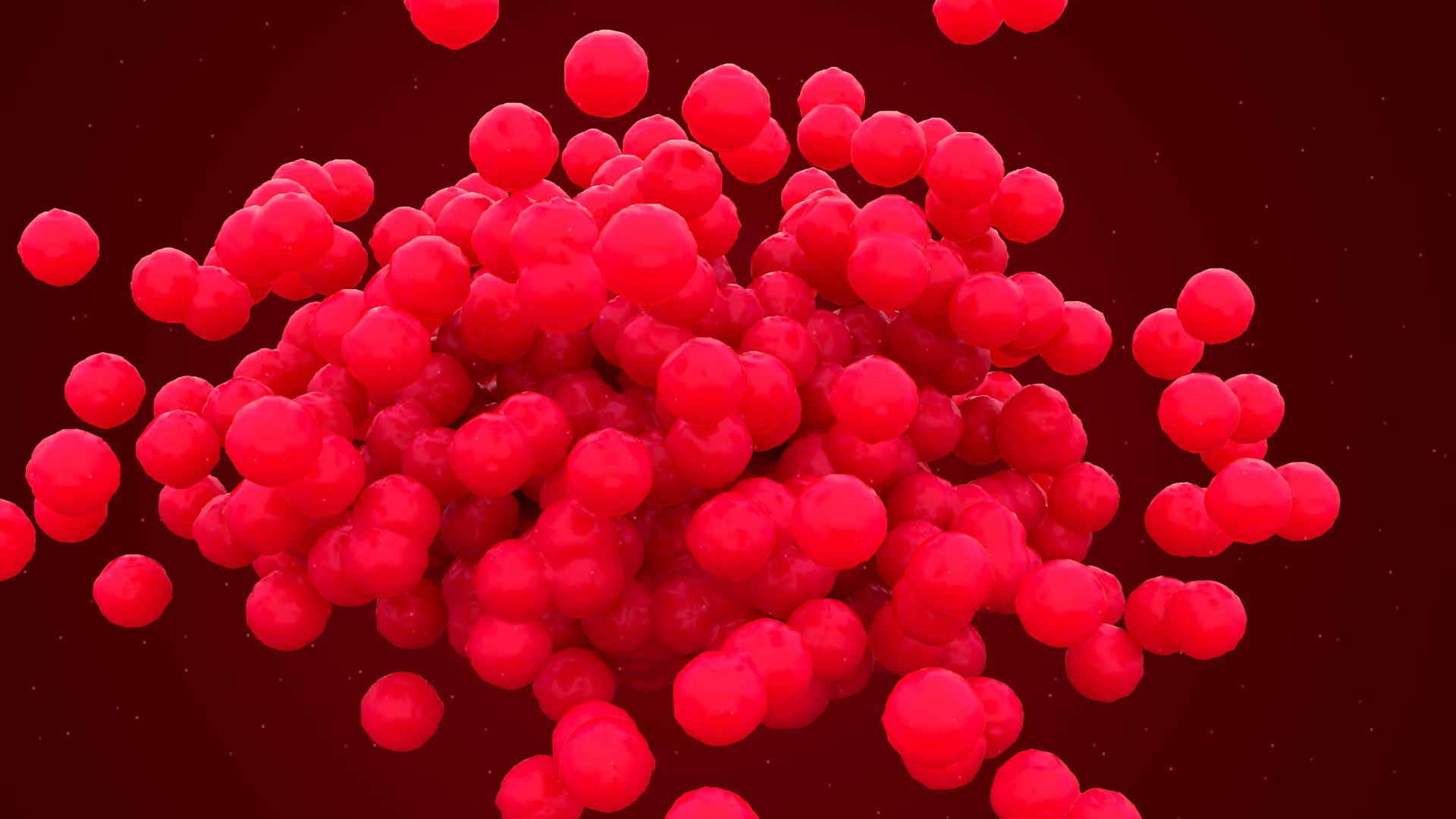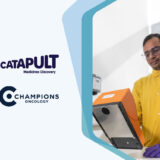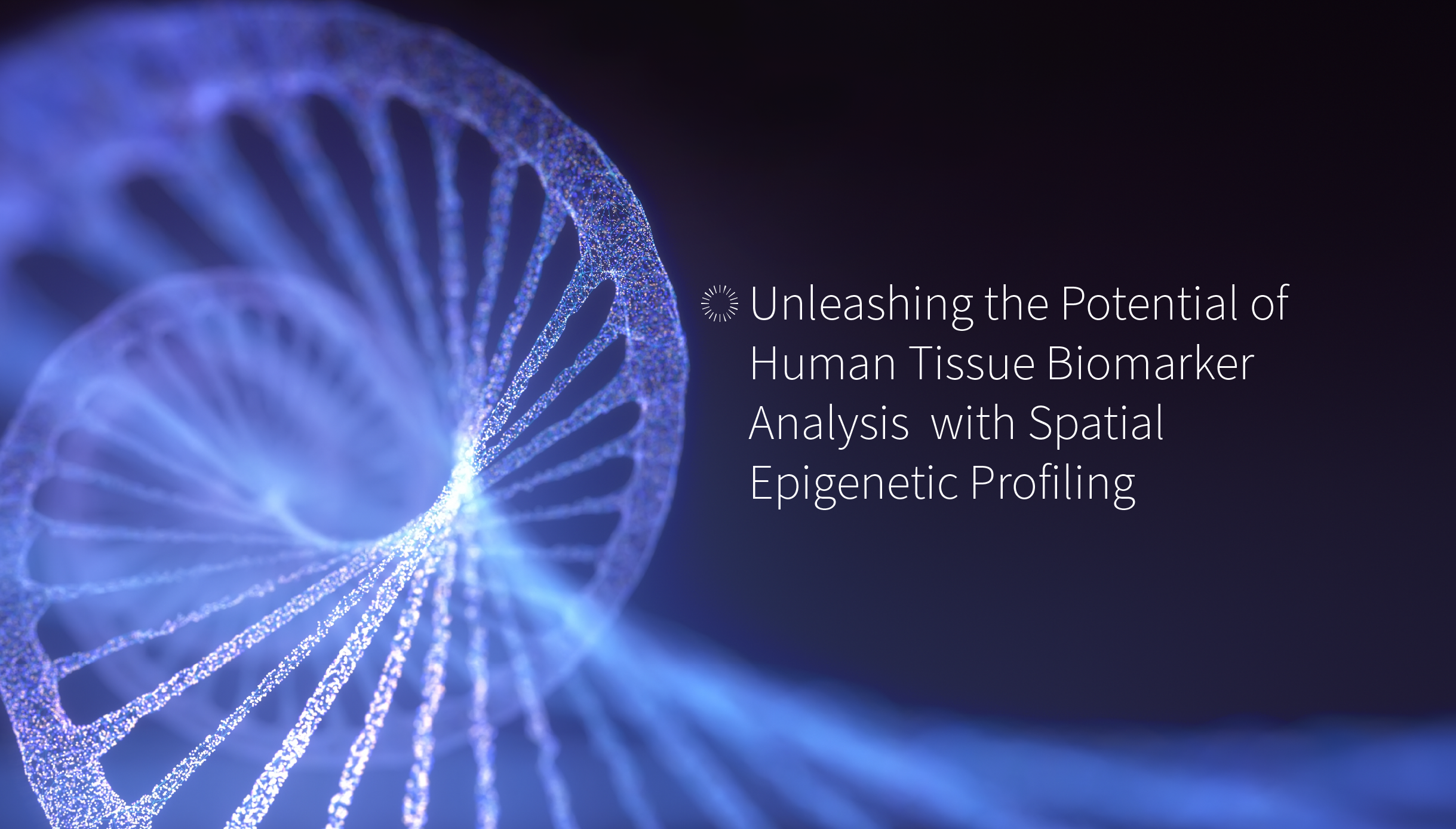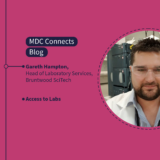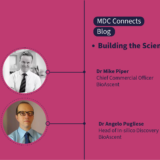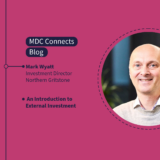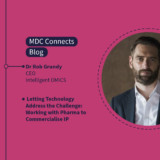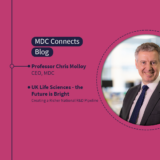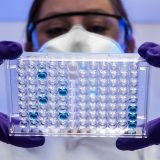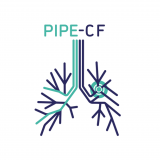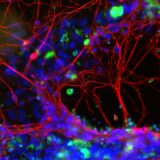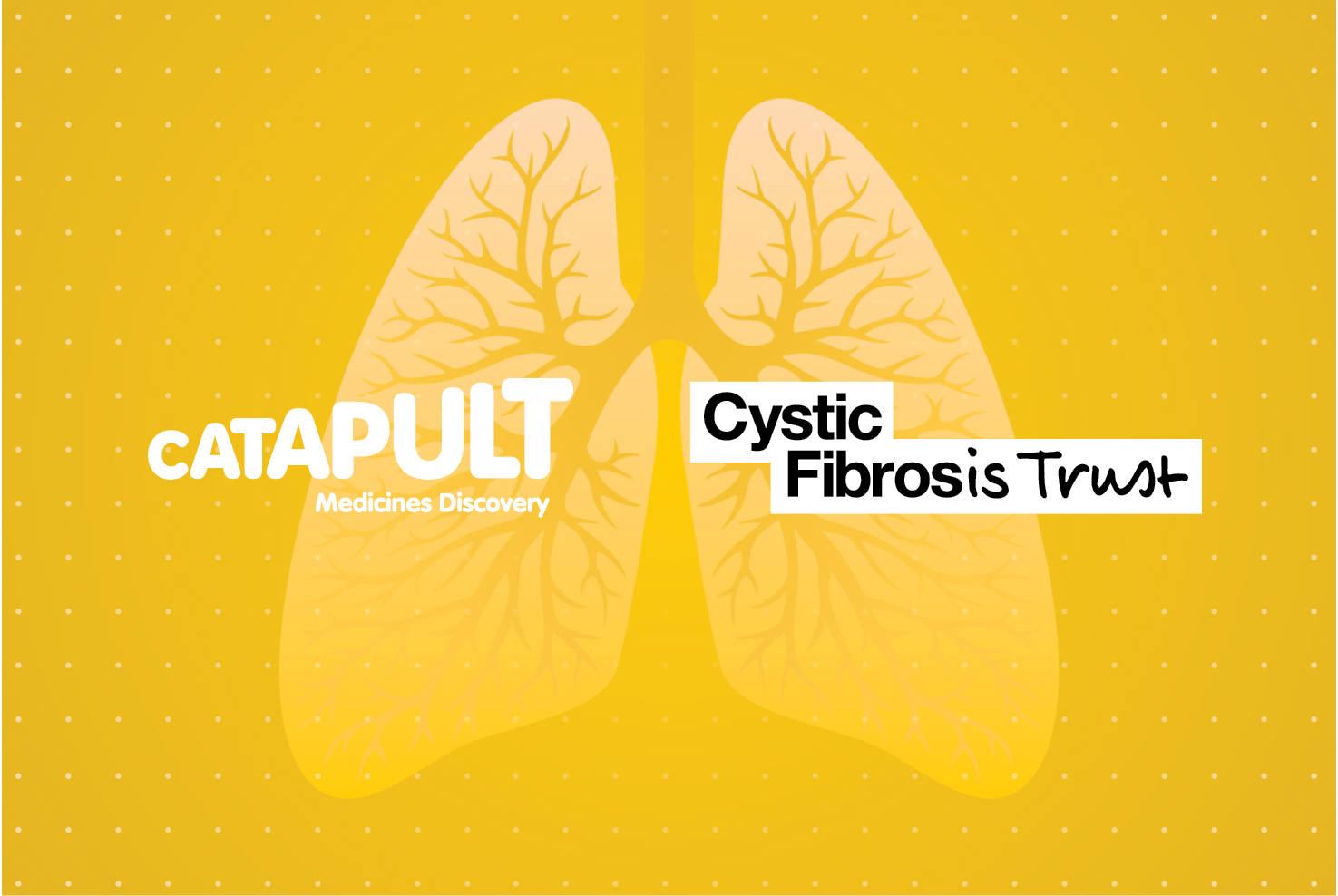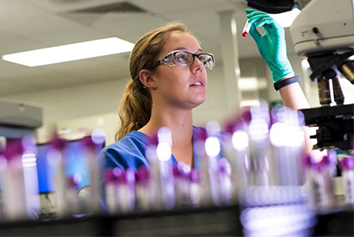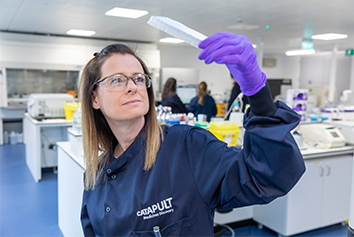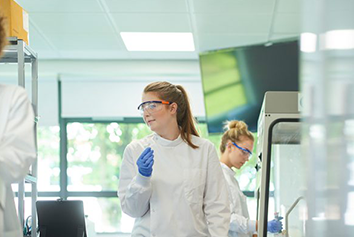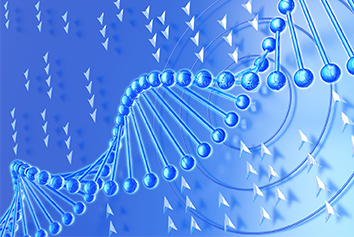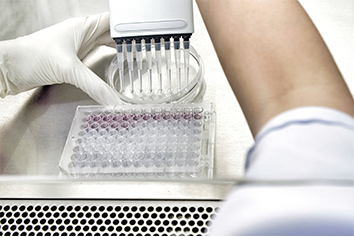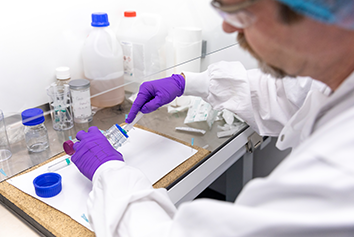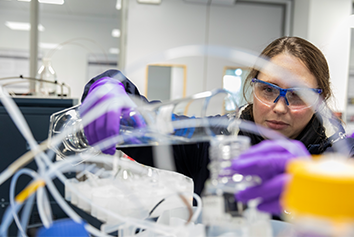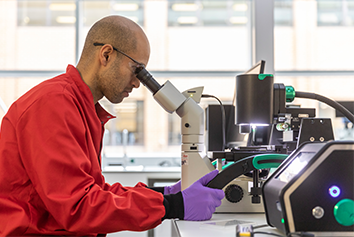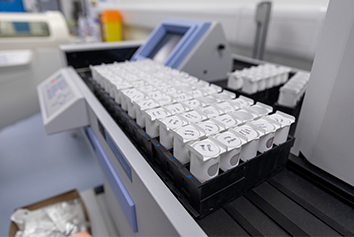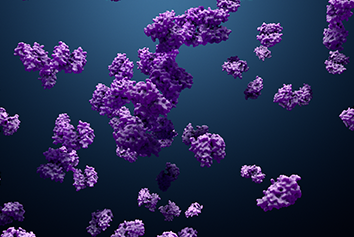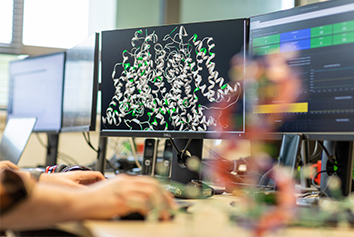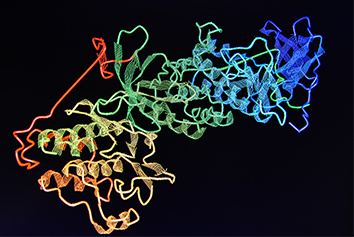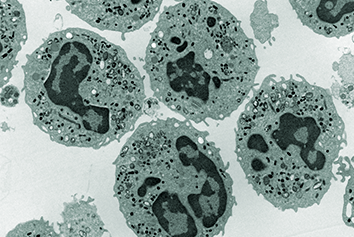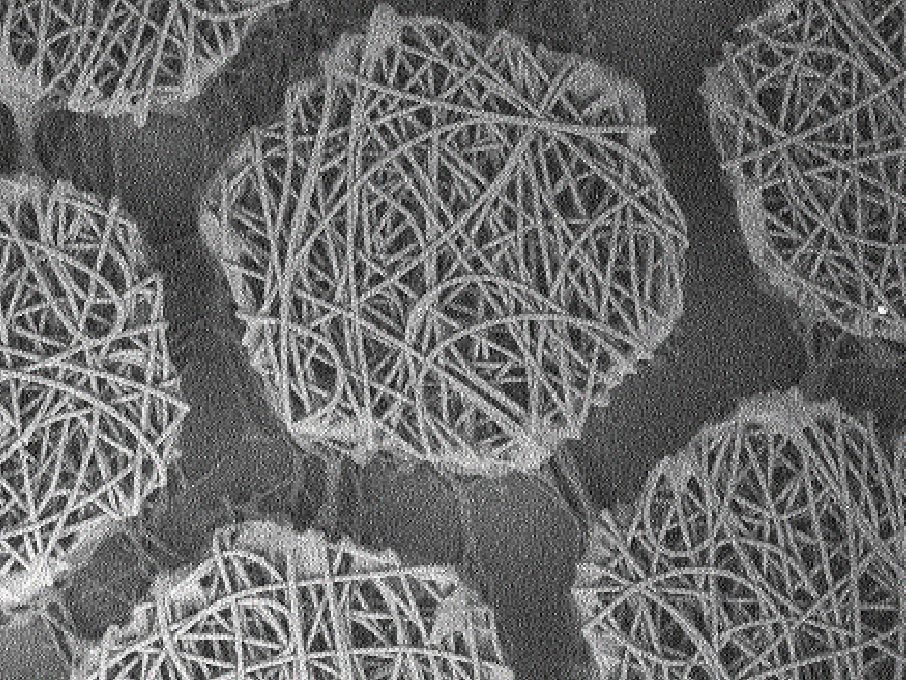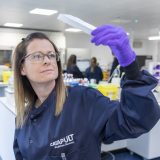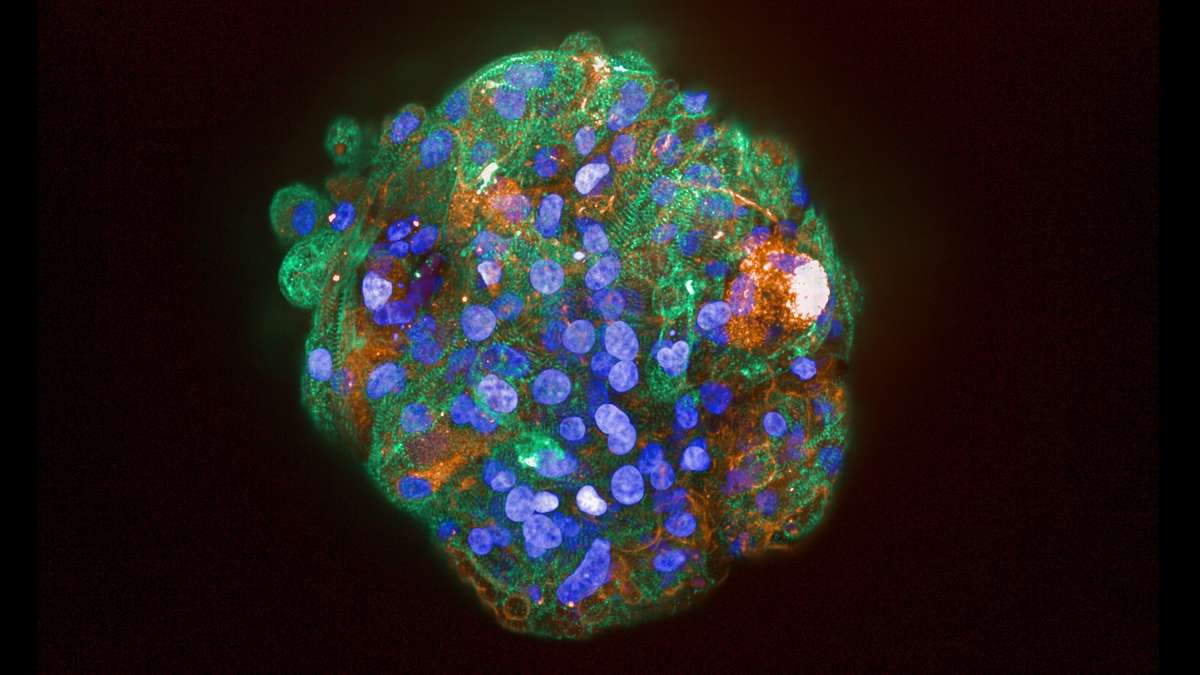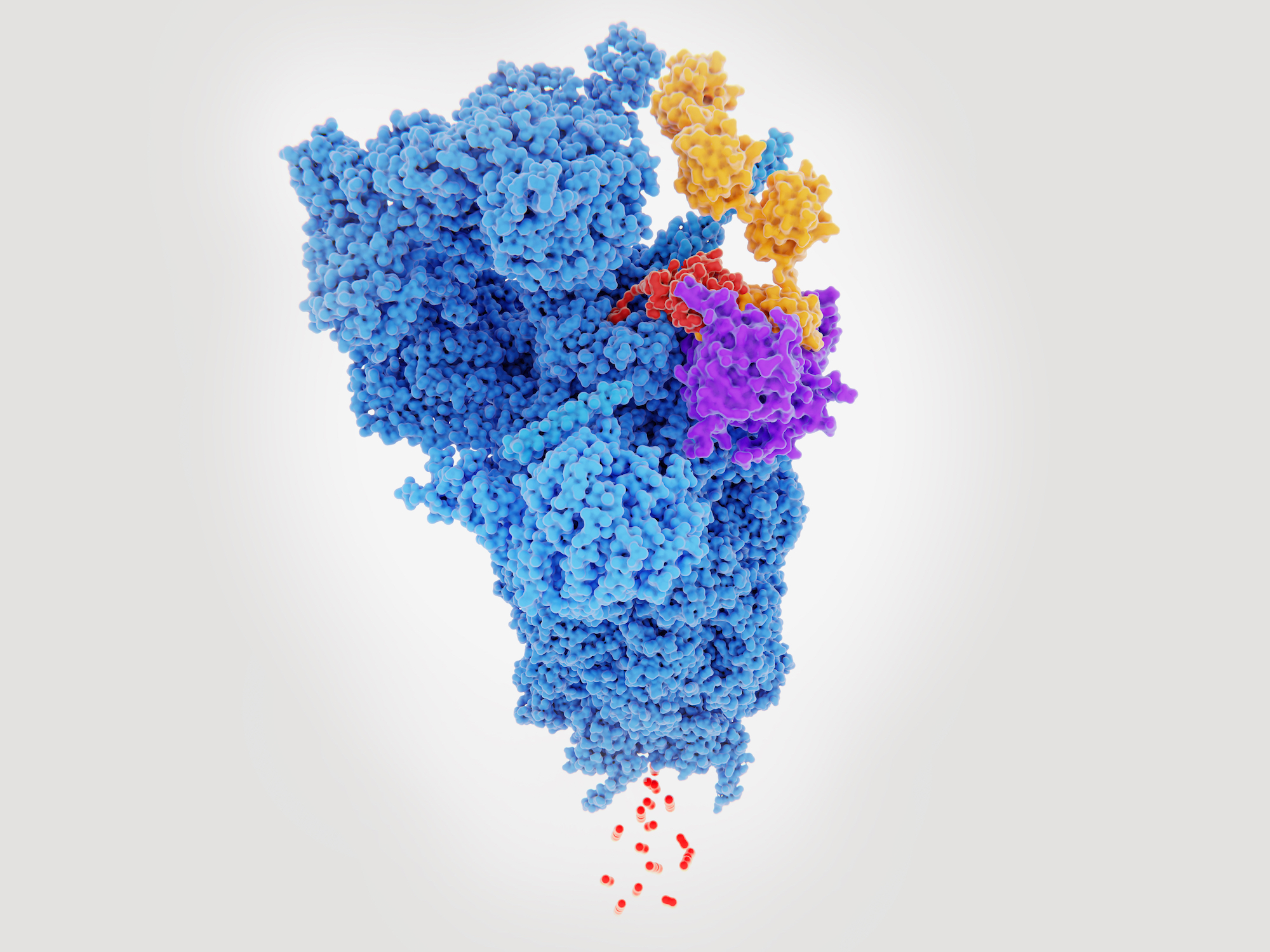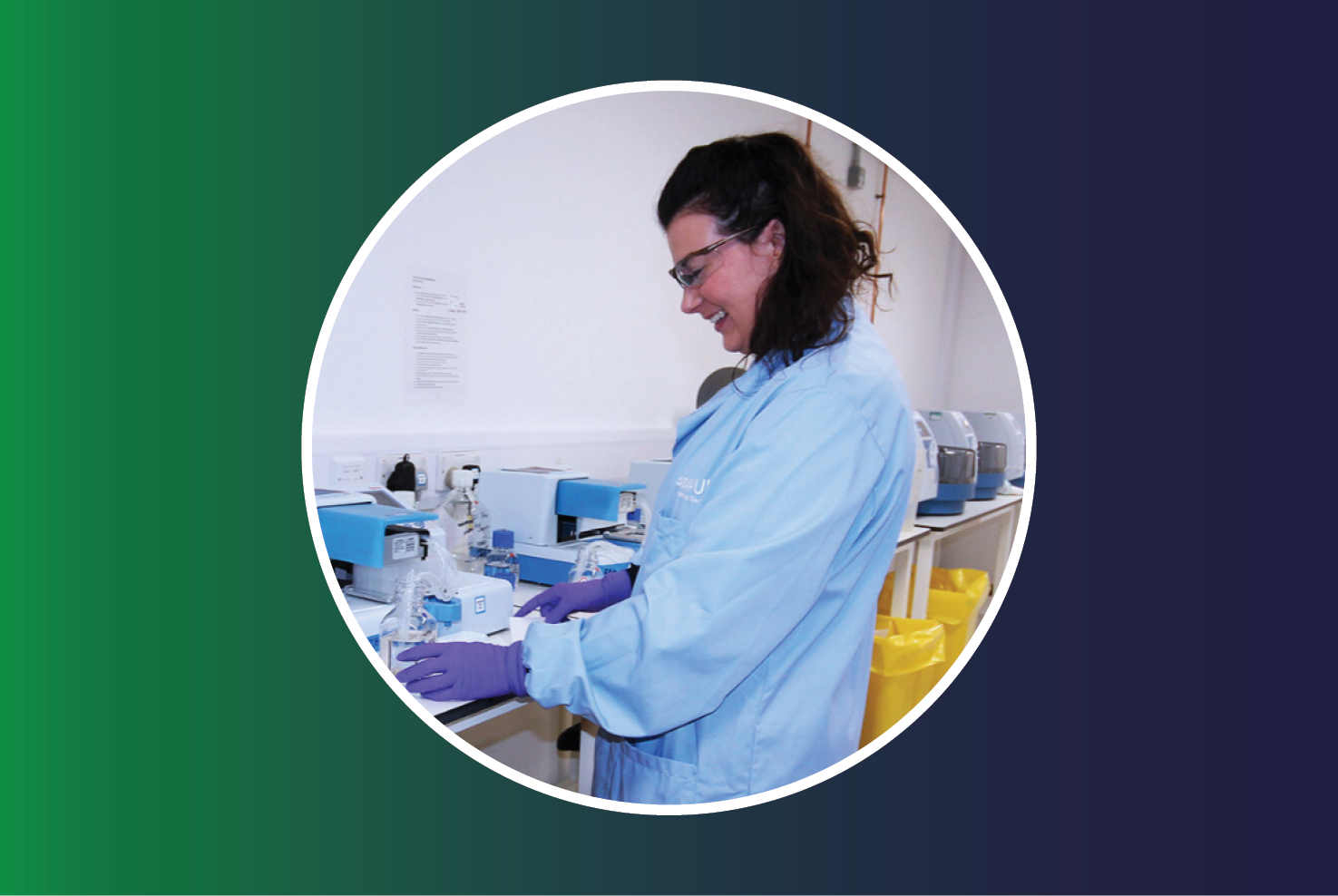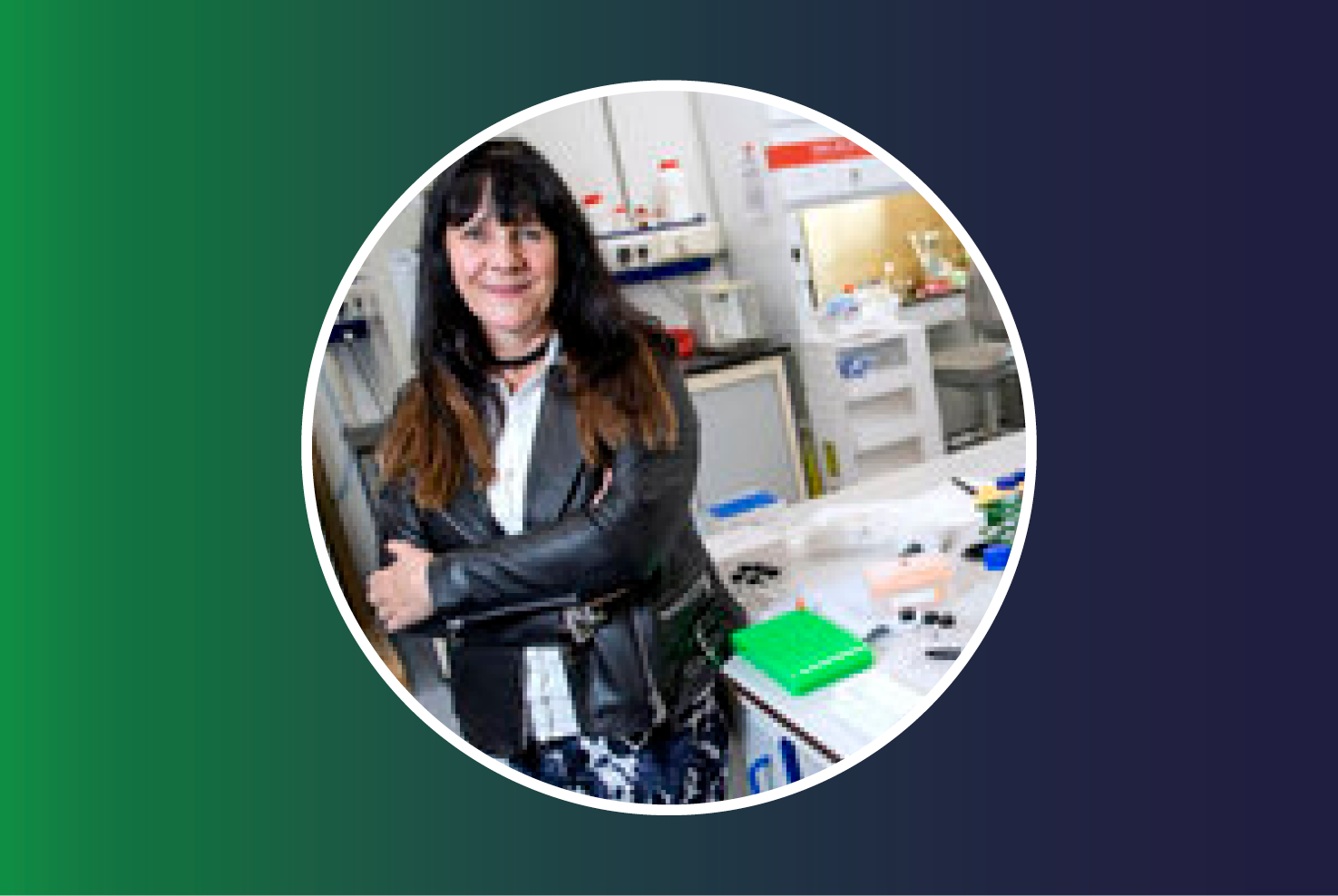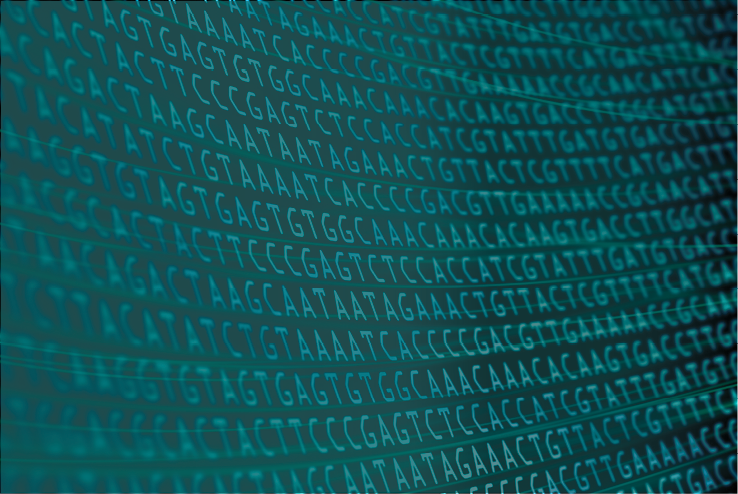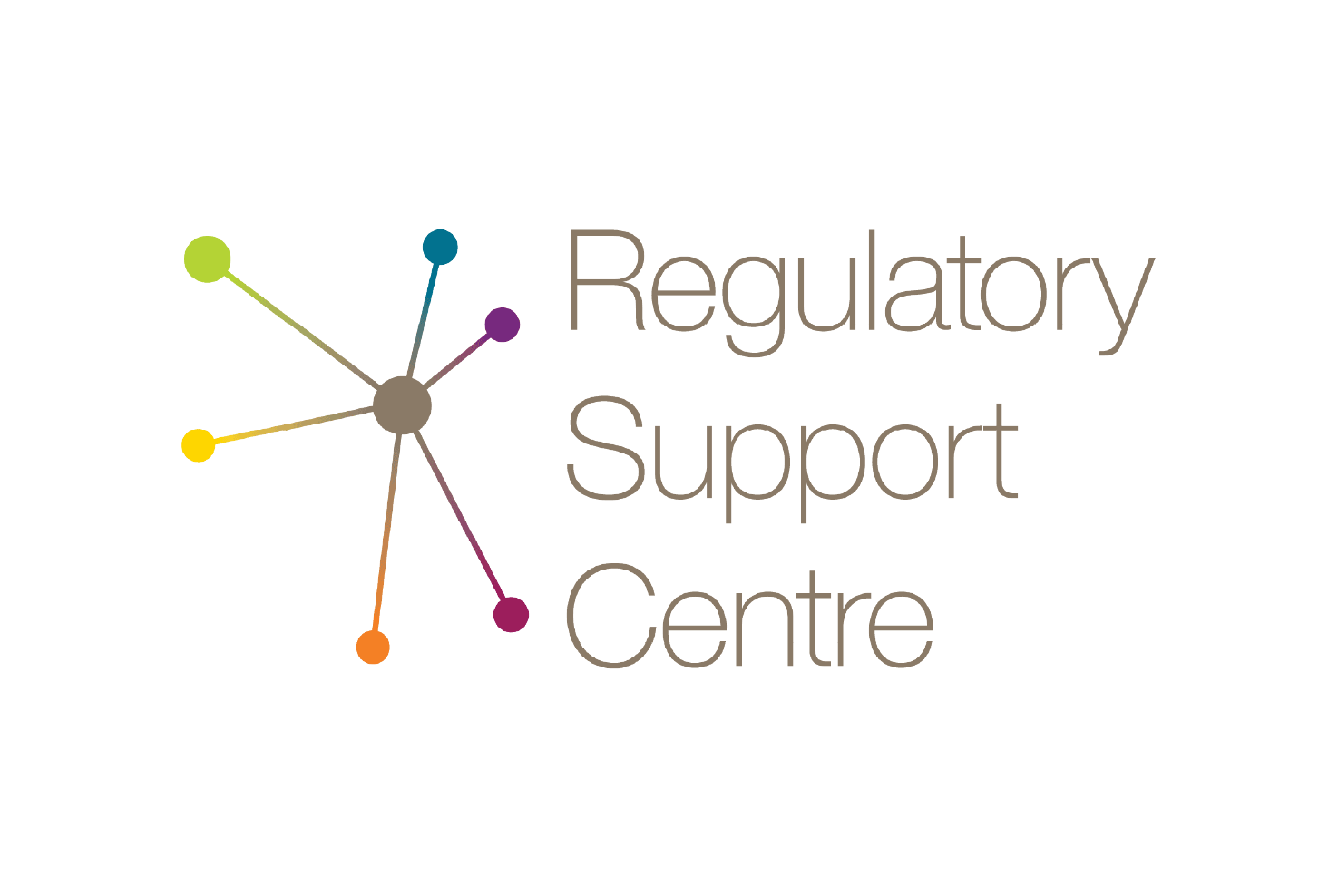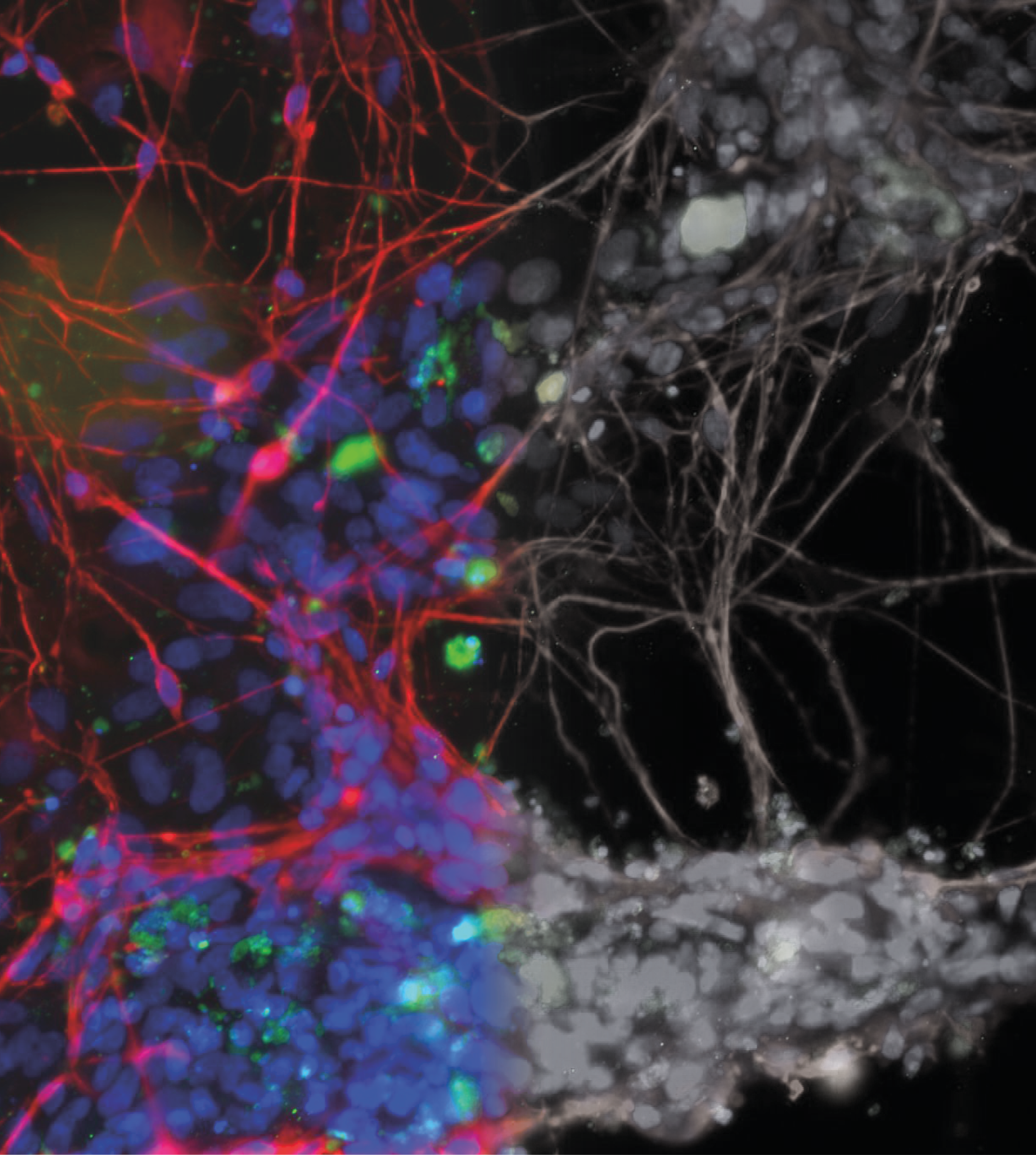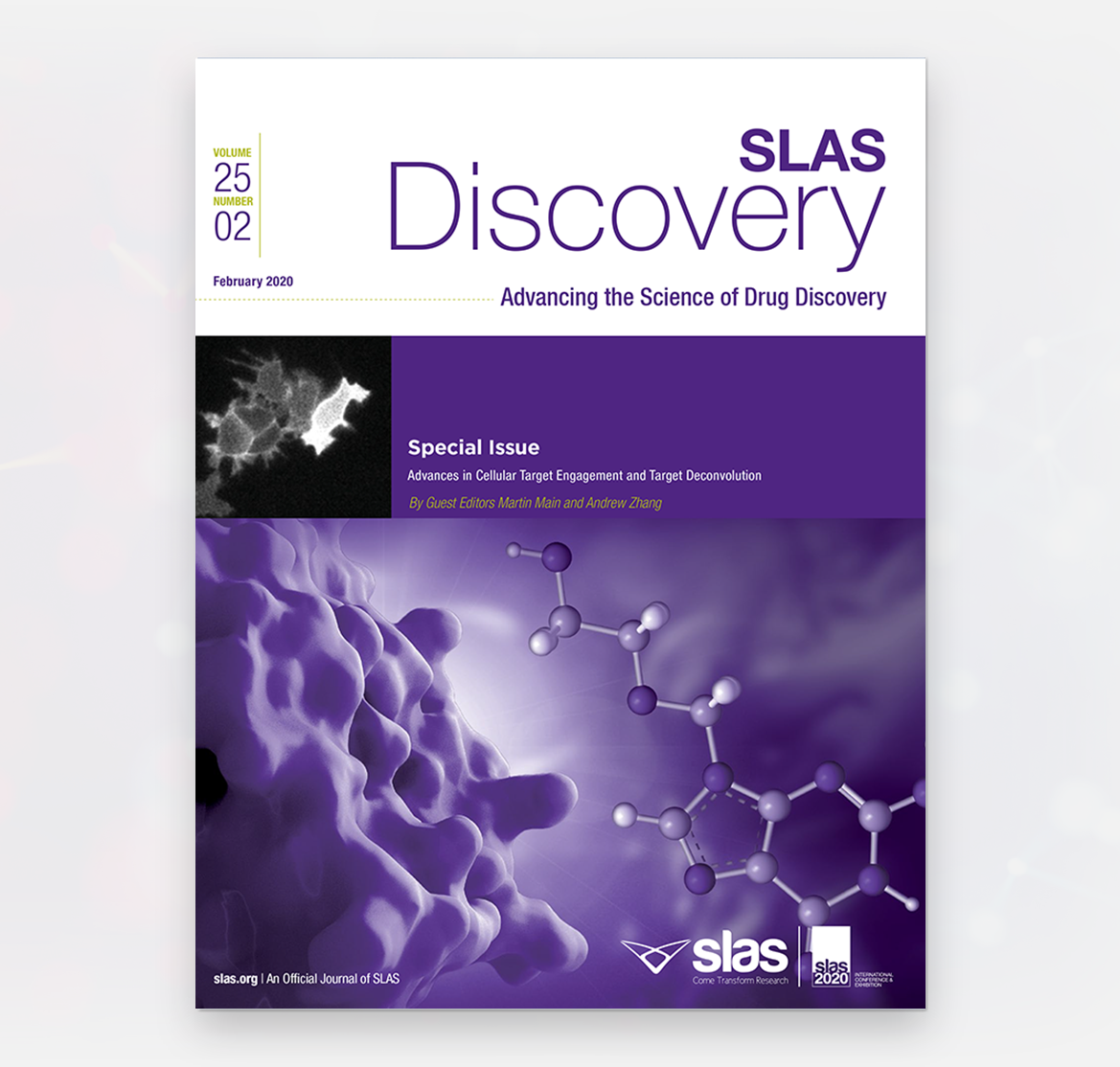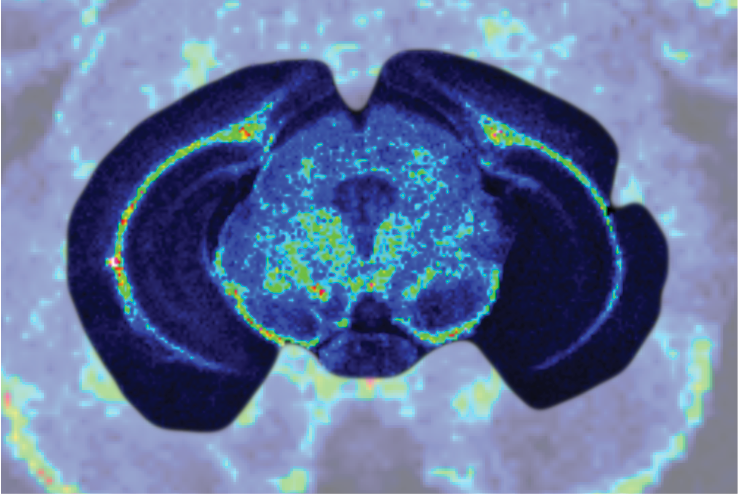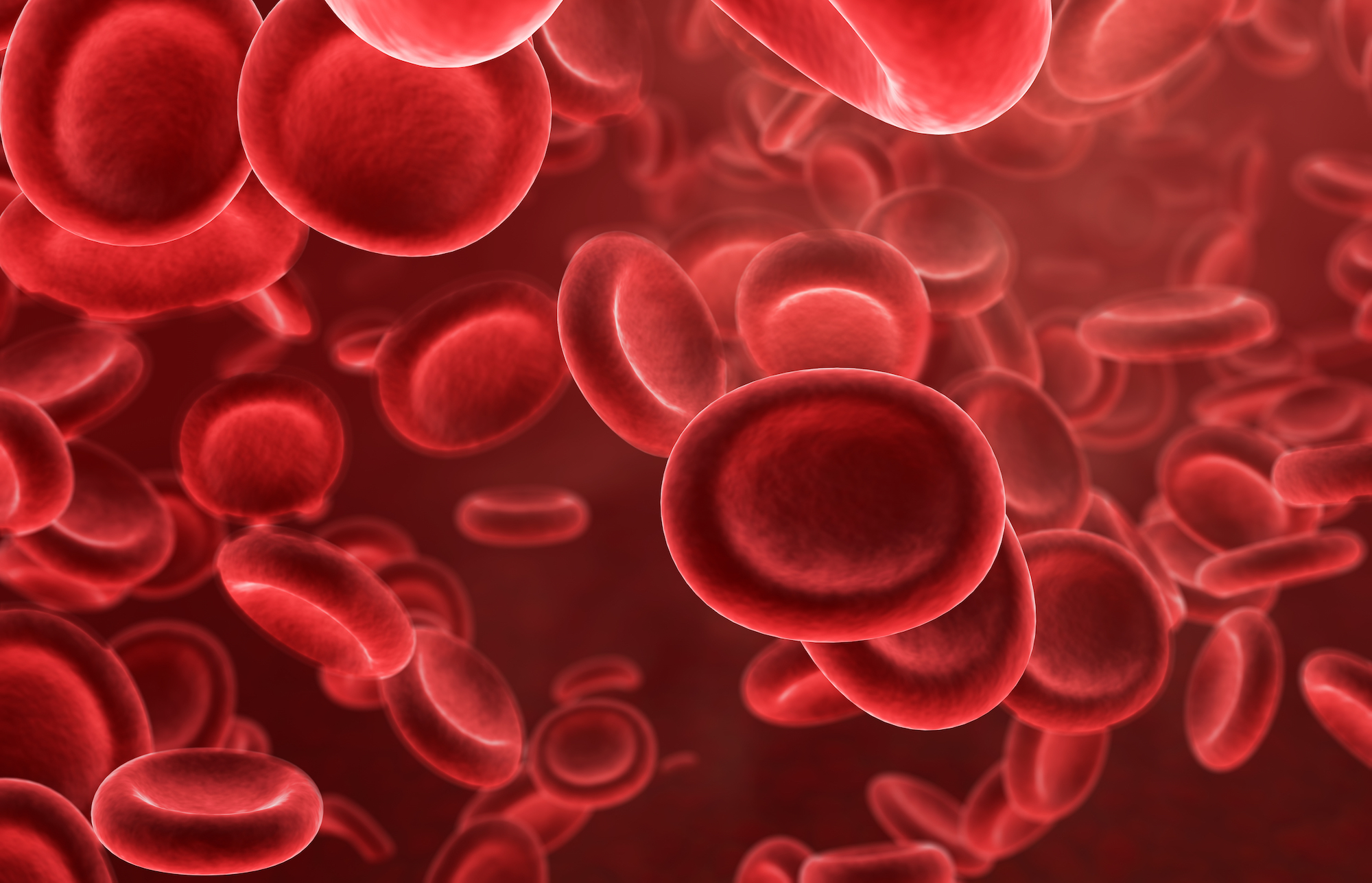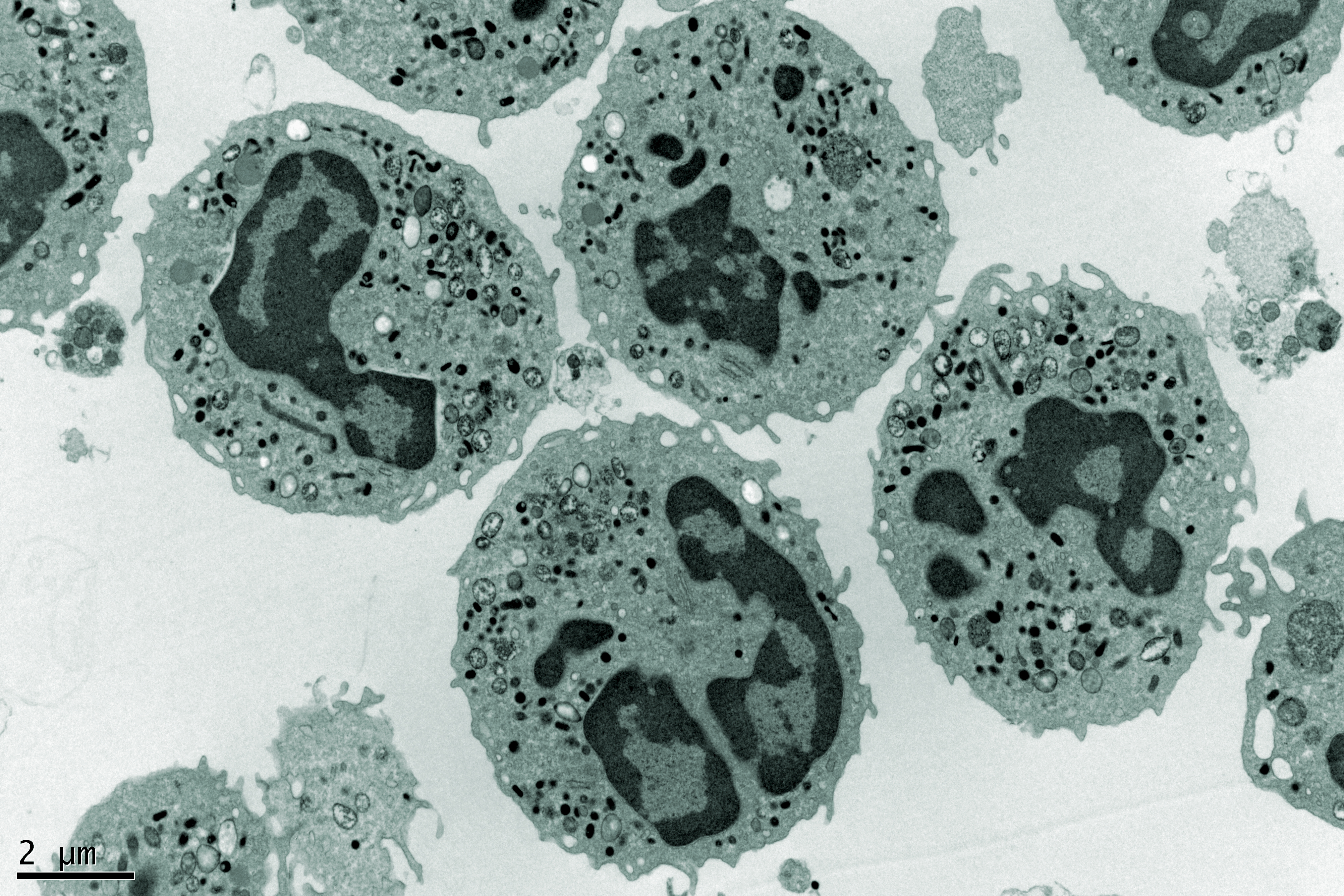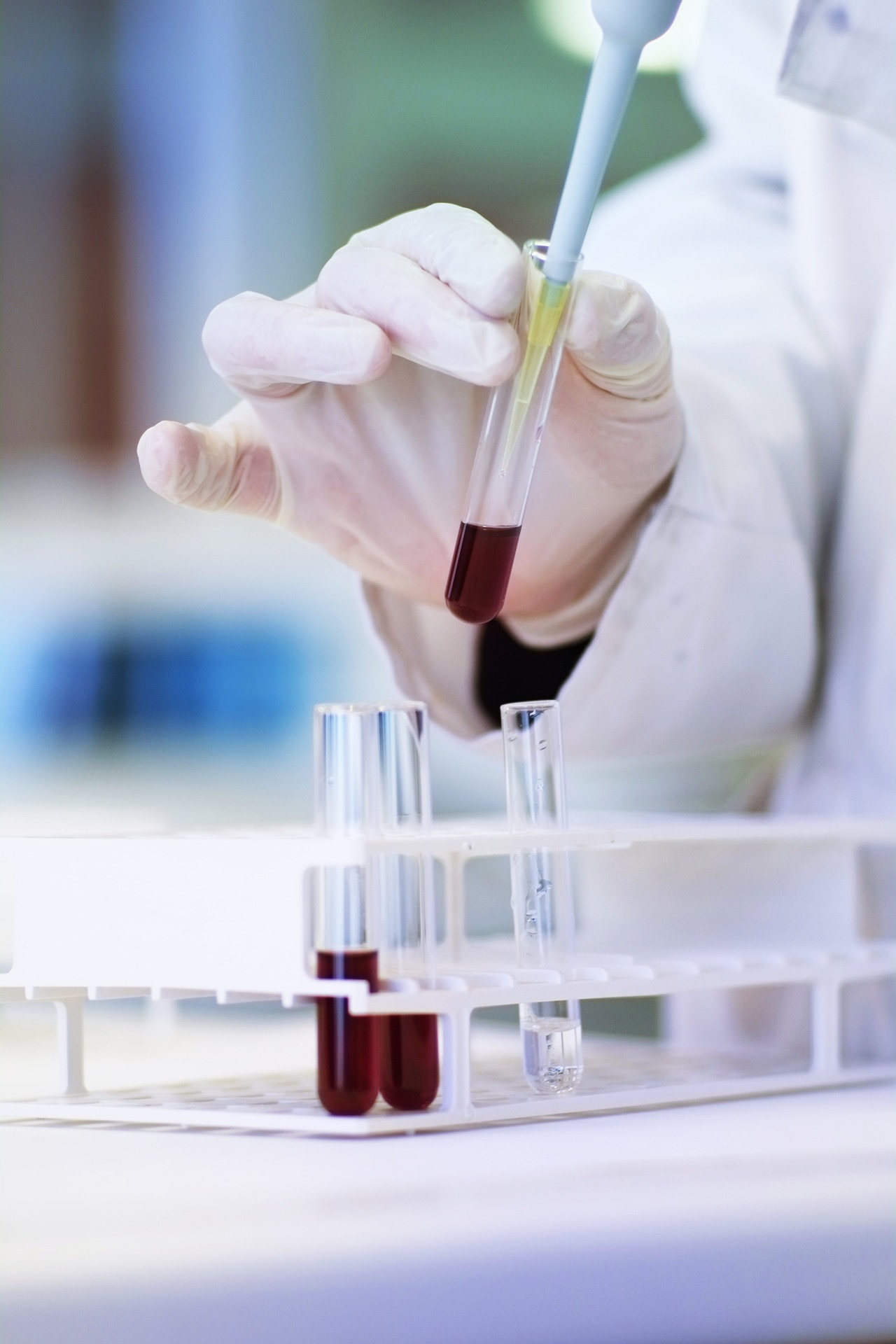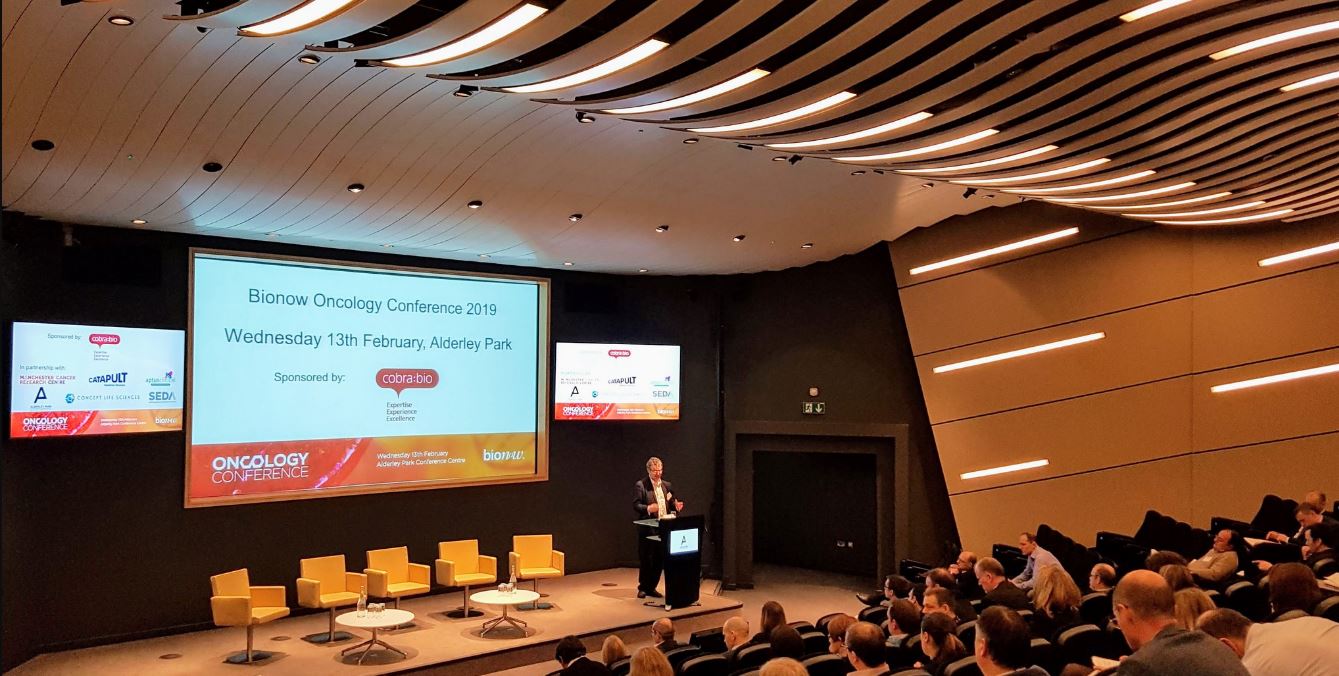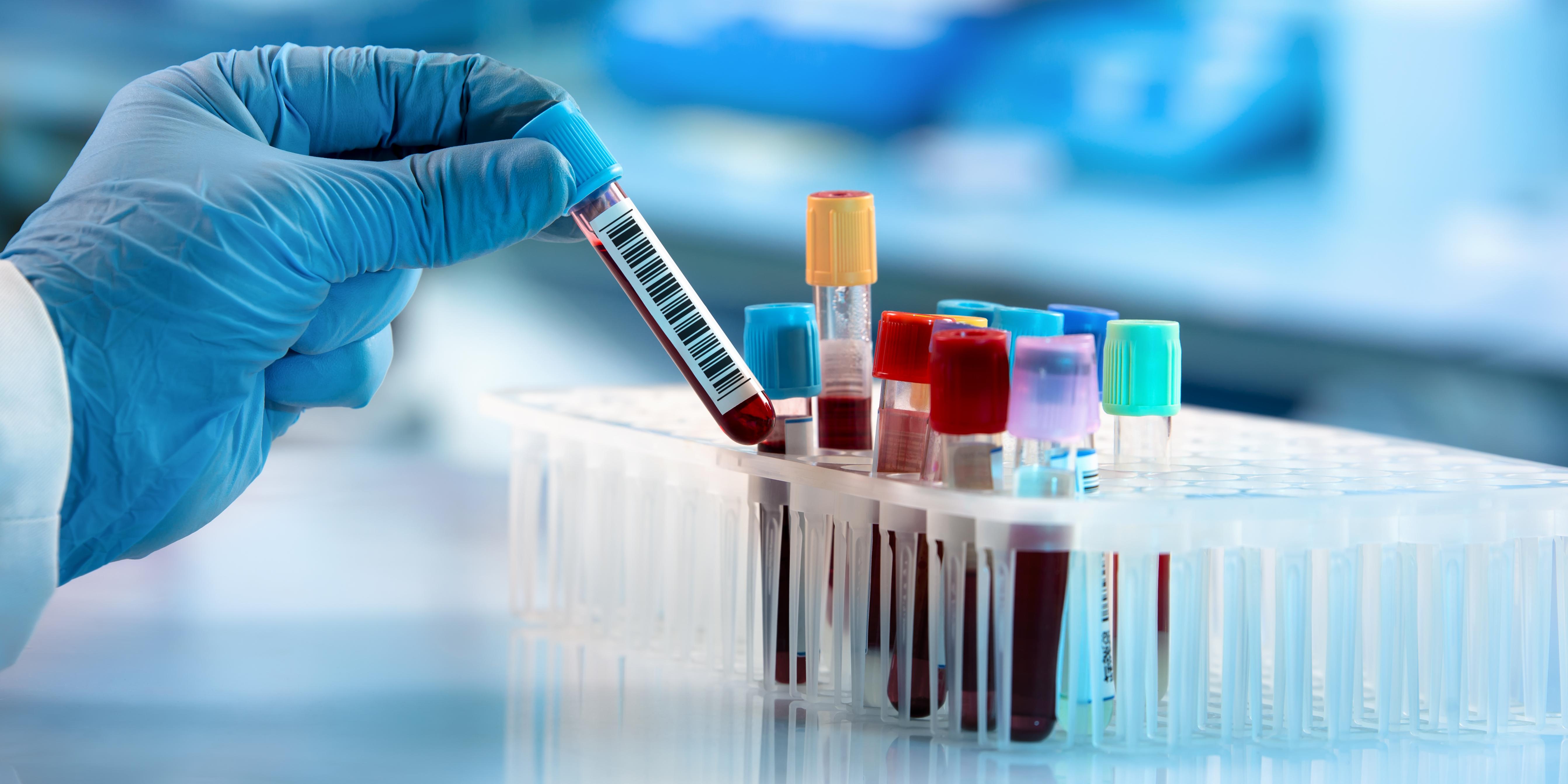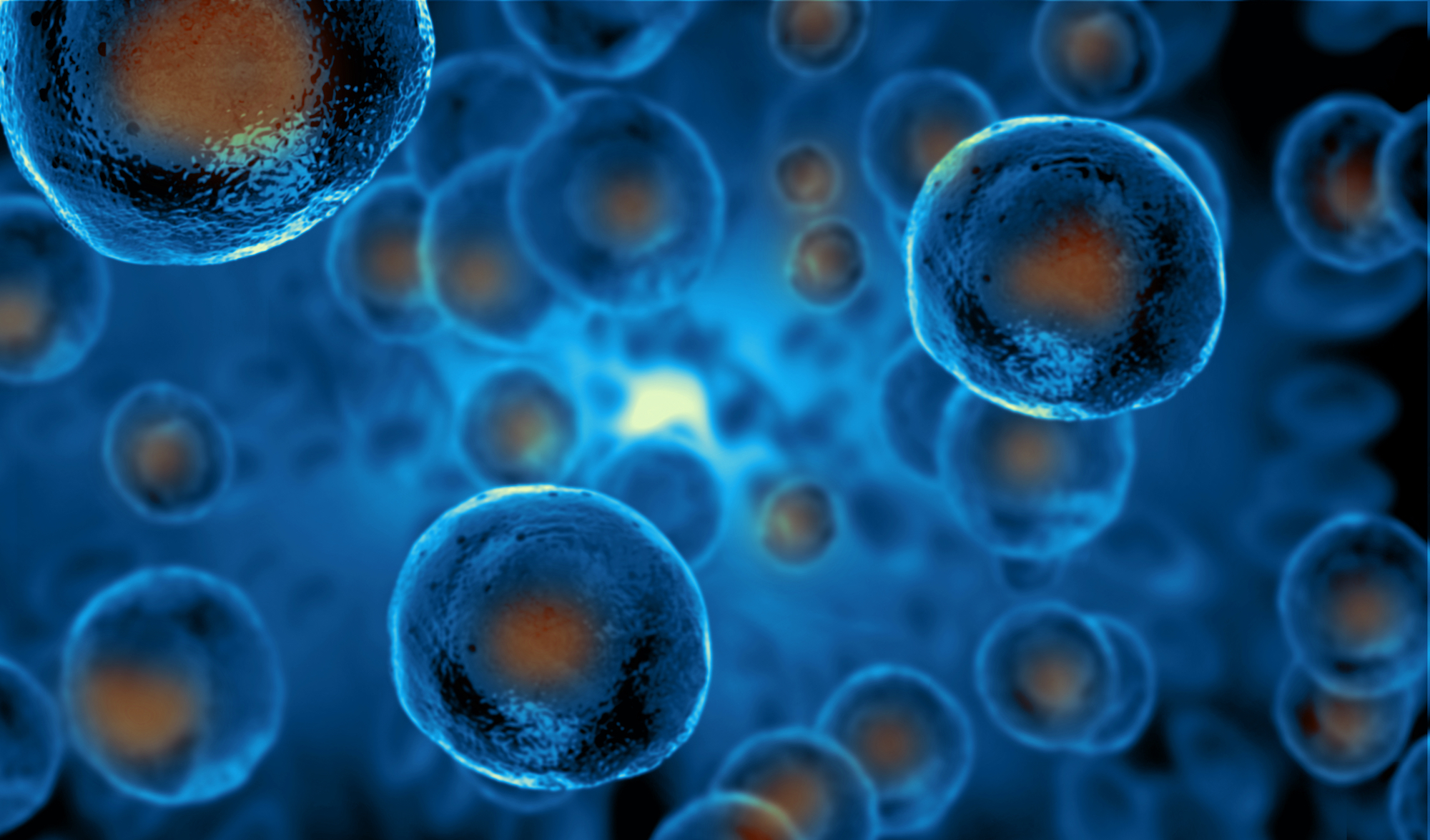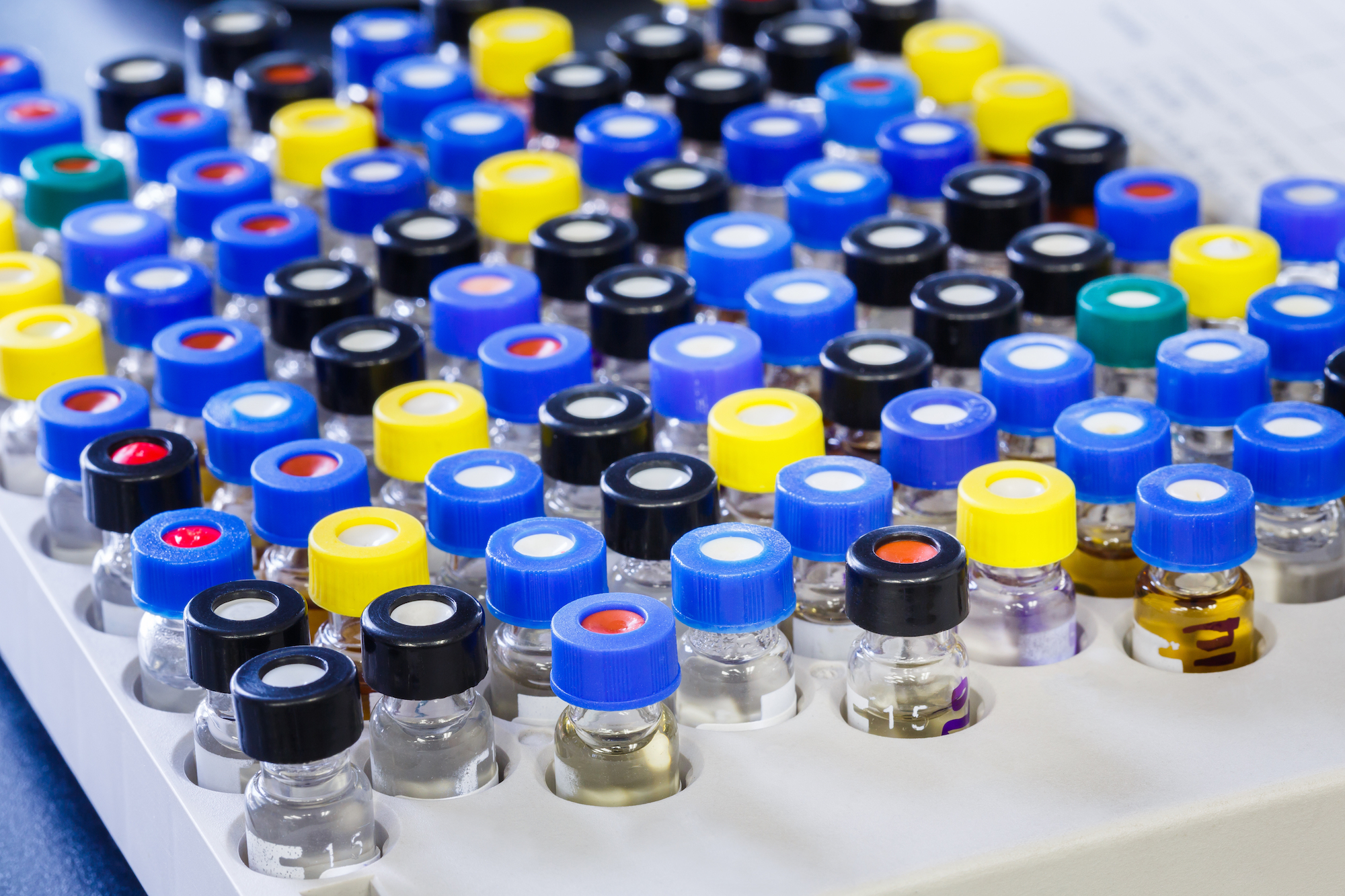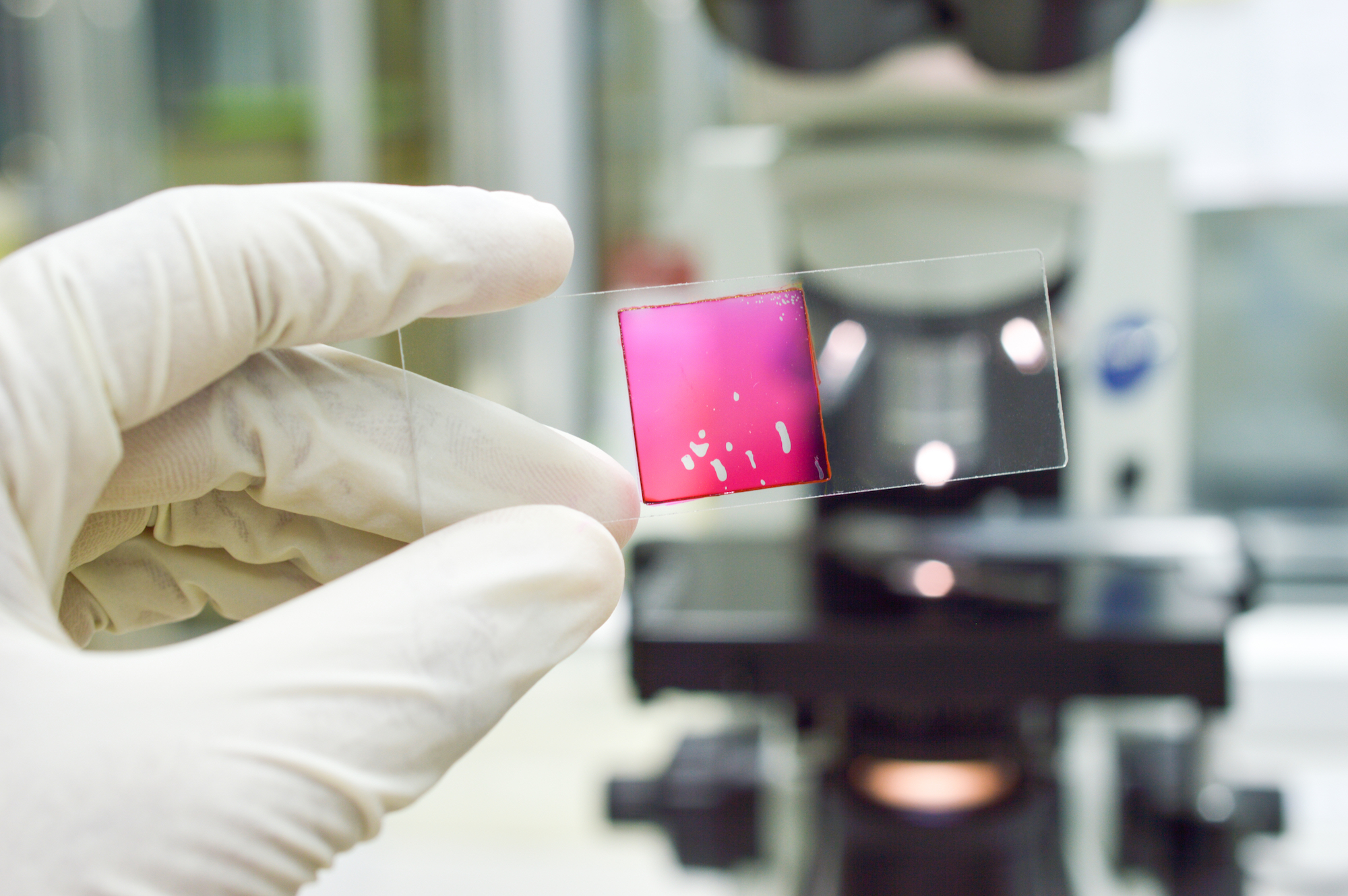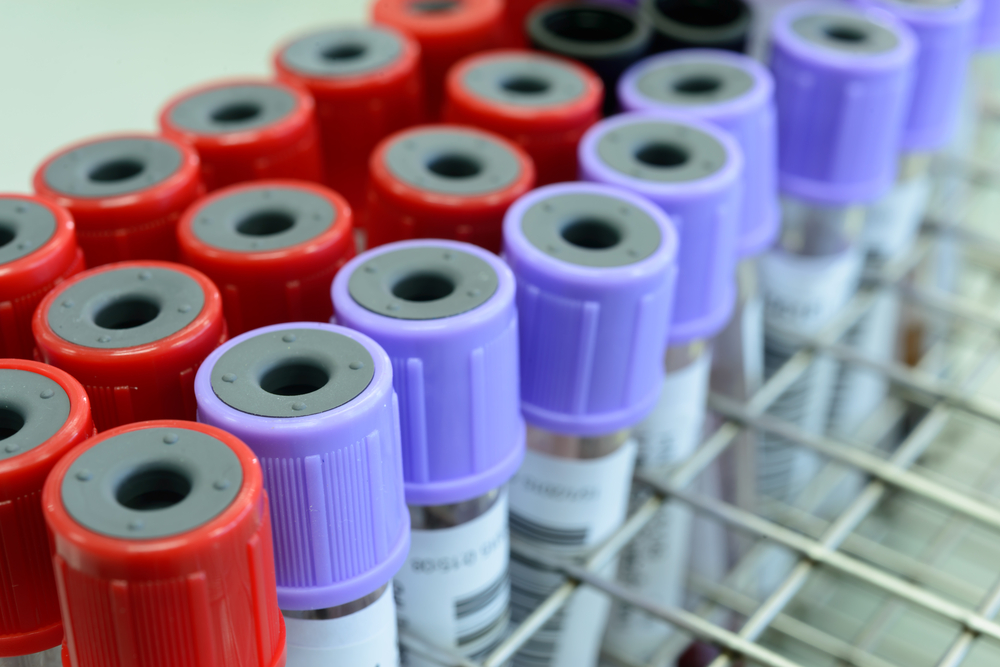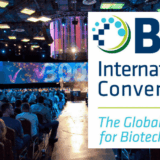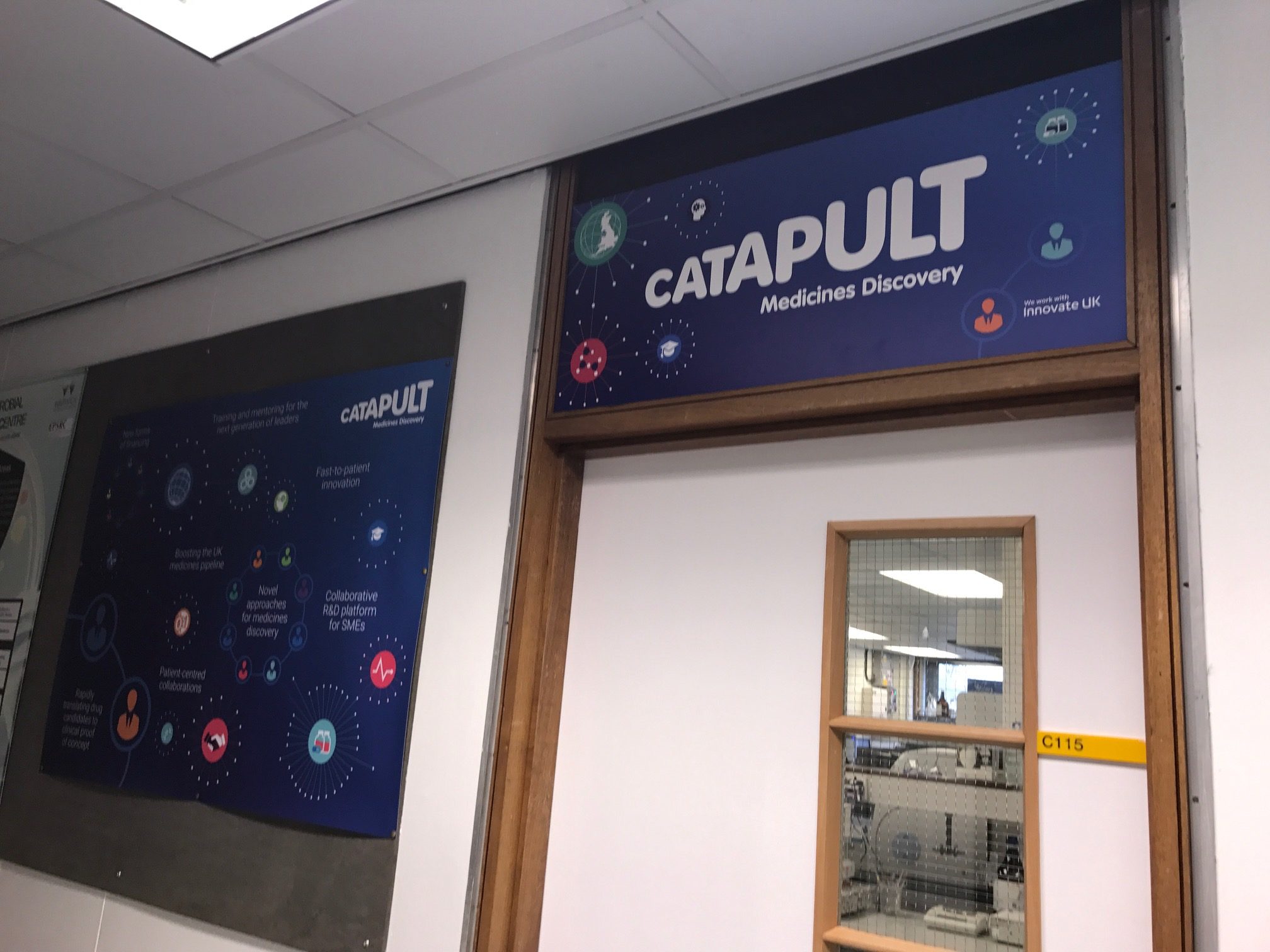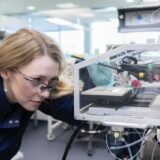Medicines Discovery Catapult (MDC) and Xerion Healthcare have been awarded Innovate UK SMART Grant funding to develop a unique solution that will enhance the effect of post-surgical radiotherapy on aggressive brain tumours and reduce the chance of cancer regrowth.
In recent years good progress has been made to treat certain common cancers; however, there remains a significant unmet need for many areas of oncology, including aggressive brain tumours like glioblastoma. The median survival time for patients with these tumours is 14.6 months1.
The current treatment approach includes surgery to remove as much of the tumour as possible, followed by radiotherapy and chemotherapy. However, it is common for the tumour to return to the site of removal, and regrowth is often rapid. Recurrent tumours require extensive medical interventions, which, unfortunately, often do not translate into significantly increased rates of survival and instead negatively impact the patient’s quality of life.
Radiotherapy can treat solid tumours and increasing the X-ray dose has been shown to improve treatment outcomes, but with a detrimental effect on healthy tissue.
Xerion, an Oxfordshire-based SME spin-out from the University of Oxford, has developed a unique nanoparticle solution that increases the effectiveness of radiotherapy, crucially, without damaging healthy tissue. The radiotherapy-enhancing nanoparticles will be released into areas of remaining tumour in an advanced clinically relevant in-vivo model developed by specialists at MDC. The group will then study tumour regrowth with and without the nanoparticles to demonstrate efficacy, using MDC’s pre-clinical radiotherapy platform and advanced imaging capability at its state-of-the-art laboratory in Cheshire.
The data extracted from the collaborative project between MDC and Xerion is important, as it will form the basis of a submission to the Medicines and Healthcare Products Regulatory Agency (MHRA), enabling Xerion to take the novel therapeutic approach to clinical trials and one step closer to patients.
Dr Gareth Wakefield, Chief Technology Officer at Xerion Healthcare, said:
“High-grade brain tumours are an extremely challenging disease type with little improvement in outcomes over the last forty years. New treatment options are urgently needed to reduce the almost inevitable regrowth of these tumours following resection. To develop these treatments, advanced models and imaging are required. By partnering with the experts at MDC, Xerion will be able to apply its nanoparticle radiotherapy enhancing technology to a realistic model of this disease, bringing novel treatments closer to the clinic.”
Dr Martin Main, Chief Scientist at Medicines Discovery Catapult, said:
“At MDC, we are driven by reshaping drug discovery for the benefit of patients, and this project is the epitome of that. Tragically, brain tumours kill more people under 402 than any other type of cancer, so there is an urgent need for new therapeutic approaches to treat this disease. Combining Xerion’s radiotherapy expertise with MDC’s advanced imaging capability will allow us to address a critical unmet need for treating aggressive brain tumours and move one step closer to improving the quality of life for many patients.”
Dr David Jenkinson, Chief Scientific Officer at The Brain Tumour Charity, which funds world-class research and provides trusted support for anyone affected by brain tumours, said:
“Brain tumours remain the biggest cancer killer of the under 40s, and, unlike many other cancers, survival rates have not yet significantly improved over the last 40 years. We urgently need to find kinder, more effective treatments to reduce the harm this devastating disease causes for so many.
“This is a promising research avenue, and we look forward to the results of this study to better understand whether the use of nanoparticles could help enhance the effectiveness of targeted radiotherapy in high-grade brain tumours.”
MDC is reshaping drug discovery for patient benefit, transforming great UK science into better treatments through partnership. It works to tackle industry-led challenges, overcoming the barriers that limit today’s drug discovery with effective interventions. By industrialising new technologies to better predict the probability of successful medicines discovery, connecting the Life Sciences ecosystem and supporting drug discovery innovators, MDC accelerates business growth, leading to improved outcomes for patients.
MDC and Xerion are part of a cohort of UK organisations to receive a share of the £25 million funding from Innovate UK for potentially ground-breaking and commercially viable R&D innovations that can significantly impact patient outcomes and support the UK economy.
- Lonardi S, Tosoni A and Brandes AA, ‘Adjuvant chemotherapy in the treatment of high-grade gliomas’, Cancer Treatment Reviews 31 (2005) 79-89
- Statistics about brain tumours | The Brain Tumour Charity

